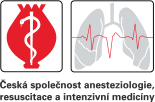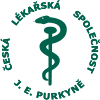Anest. intenziv. Med. 2015;26(3):174-177
Hodnocení neurologické prognózy dospělých pacientů po srdeční zástavěGuidelines
- Česká společnost intenzivní medicíny ČLS JEP
- Česká společnost anesteziologie, resuscitace a intenzivní medicíny ČLS JEP
- Česká resuscitační rada
- Česká neurologická společnost ČLS JEP
Published: June 1, 2015 Show citation
References
- Al Thenayan E, Savard M, Sharpe M, et al. Predictors of poor neurologic outcome after induced mild hypothermia following cardiac arrest. Neurology 2008; 71(19): 1535-1537.
 Go to original source...
Go to original source...  Go to PubMed...
Go to PubMed... - Bouwes A, Binnekade JM, Kuiper MA, et al. Prognosis of coma after therapeutic hypothermia: a prospective cohort study. Ann Neurol 2012; 71: 206-212.
 Go to original source...
Go to original source...  Go to PubMed...
Go to PubMed... - Cronberg T, Brizzi M, Liedholm LJ, et al. Neurological prognostication after cardiac arrest-Recommendations from the Swedish Resuscitation Council. Resuscitation 2013; 84(7): 867-872.
 Go to original source...
Go to original source...  Go to PubMed...
Go to PubMed... - Friberg H, Rundgren M, Westhall E, et al. Continuous evaluation of neurological prognosis after cardiac arrest. Acta Anaesthesiol Scand 2013; 57: 6-15.
 Go to original source...
Go to original source...  Go to PubMed...
Go to PubMed... - Leary M, Fried DA, Gaieski DF, et al. Neurologic prognostication and bispectral index monitoring after resuscitation from cardiac arrest. Resuscitation 2010; 81(9): 1133-1137.
 Go to original source...
Go to original source...  Go to PubMed...
Go to PubMed... - Leithner C, Ploner CJ, Hasper D, et al. Does hypothermia influence the predictive value of bilateral absent N20 after cardiac arrest? Neurology 2010; 74: 965-969.
 Go to original source...
Go to original source...  Go to PubMed...
Go to PubMed... - Lucas JM, Cocchi MN, Salciccioli J, et al. Neurologic recovery after therapeutic hypothermia in patients with post-cardiac arrest myoclonus. Resuscitation 2012; 83: 265-269.
 Go to original source...
Go to original source...  Go to PubMed...
Go to PubMed... - Noritoshi I, Shinsuke N, Nagaoc K, et al. Regional cerebral oxygen saturation on hospital arrival is a potential novel predictor of neurological outcomes at hospital discharge in patients with out-of-hospital cardiac arrest. Resuscitation 2012; 83: 46-50.
 Go to original source...
Go to original source...  Go to PubMed...
Go to PubMed... - Rossetti AO, Oddo M, Liaudet L, et al. Predictors of awakening from postanoxic status epilepticus after therapeutic hypothermia. Neurology 2009; 72; 744-749.
 Go to original source...
Go to original source...  Go to PubMed...
Go to PubMed... - Rossetti AO, Oddo M, Logroscino G, et al. Prognostication after cardiac arrest and hypothermia: a prospective study. Ann Neurol 2010; 67: 301-307.
 Go to original source...
Go to original source...  Go to PubMed...
Go to PubMed... - Rossetti AO, Urbano LA, Delodder F, et al. Prognostic value of continuous EEG monitoring during therapeutic hypothermia after cardiac arrest. Critical Care 2010; 14: R173.
 Go to original source...
Go to original source...  Go to PubMed...
Go to PubMed... - Samaniego EA, Mlynash M, Caulfield AF, et al. Sedation Confounds Outcome Prediction in Cardiac Arrest Survivors Treated with Hypothermia. Neurocrit Care 2011; 15(1): 113-119.
 Go to original source...
Go to original source...  Go to PubMed...
Go to PubMed... - San-juan OD, Chiapa KH, Costello DJ, et al. Periodic epileptiform discharges in hypoxic encephalopathy: BiPLEDs and GPEDs as a poor prognosis for survival. Seizure 2009; 18(5): 365-368.
 Go to original source...
Go to original source...  Go to PubMed...
Go to PubMed... - Taccone FS, Cronberg T, Friberg H, et al. How to assess prognosis after cardiac arrest and therapeutic hypothermia. Crit Care 2014; 18(1): 202.
 Go to original source...
Go to original source...  Go to PubMed...
Go to PubMed... - Tian G, Qin K, Wu YM, et al. Outcome prediction by amplitude-integrated EEG in adults with hypoxic ischemic encephalopathy. Clin Neurol Neurosurg 2012; 114(6): 585-589.
 Go to original source...
Go to original source...  Go to PubMed...
Go to PubMed... - Wijdicks EF, Hijdra A, Young GB, et al. Quality Standards Subcommittee of the American Academy of Neurology. Practice parameter: Prediction of outcome in comatose survivors after cardiopulmonary resuscitation (an evidence-based review): report of the Quality Standards Subcommittee of the American Academy of Neurology.
- Wijman CA, Mlynash M, Caulfield AF, et al. Prognostic Value of Brain Diffusion Weighted Imaging After Cardiac Arrest. Ann Neurol 2009; 65(4): 394-402.
 Go to original source...
Go to original source...  Go to PubMed...
Go to PubMed... - www.uptodate.com/contents/hypoxic-ischemic-brain-injury-evaluation-and-prognosis?source=search_result&search=hypoxic&selectedTitle=1~150.
- Zandbergen EG, Hijdra A, Koelman JH, et al. Prediction of poor outcome within the first 3 days of postanoxic coma. Neurology 2006; 66: 62-68.
 Go to original source...
Go to original source...  Go to PubMed...
Go to PubMed...





